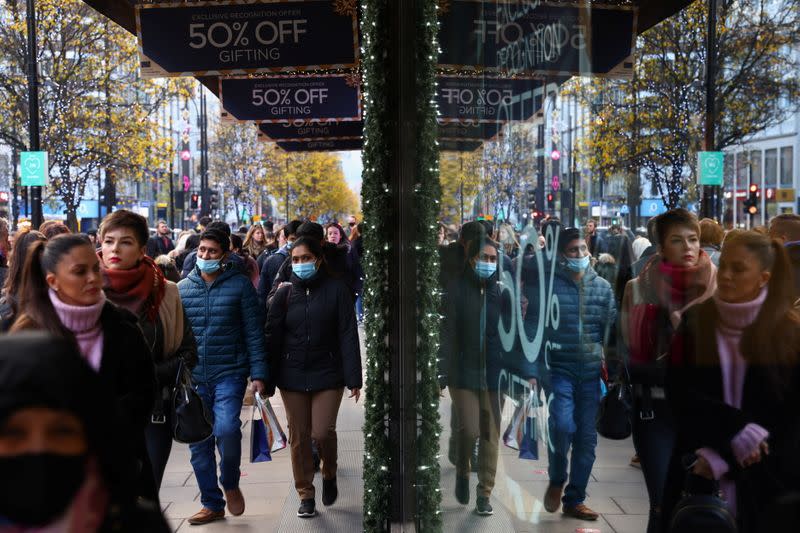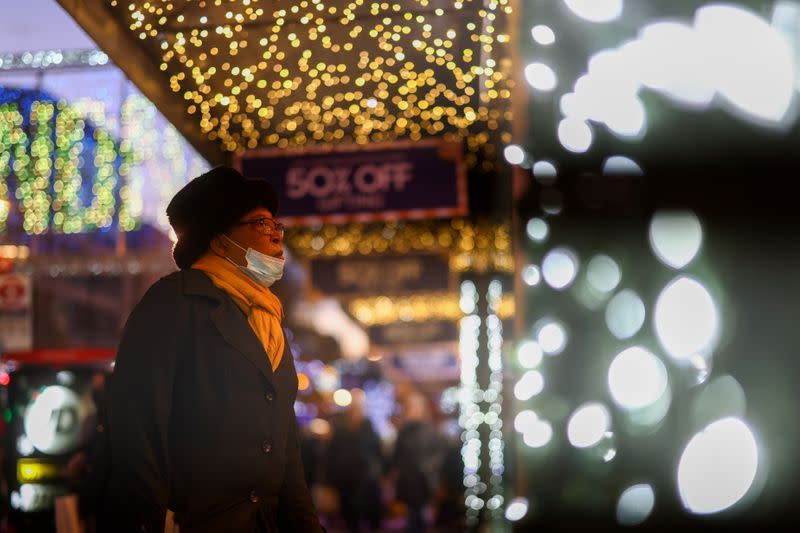Black Friday sales helped drive down UK inflation in November
By Andy Bruce and David Milliken
LONDON (Reuters) - British inflation slowed sharply in November after clothing retailers slashed prices by the most in a decade as consumer demand remained patchy amid the coronavirus pandemic.
Consumer prices rose 0.3% in annual terms, after a 0.7% increase in October, the Office for National Statistics said on Wednesday.
November's inflation is half that forecast in a Reuters poll of economists and close to the almost five-year low of 0.2% struck in August.
But with investors focused on trade talks between Britain and the European Union before the Brexit transition period expires on Dec. 31, there was little reaction to the data.
The central bank announces its December interest rate decision on Thursday and is likely to note the weak inflation, which is well below its 2% target and recent expectations.
House prices, however, continued to rise sharply, with the ONS reporting a 5.4% annual rise in the 12 months to October, the biggest increase since October 2016.
"Looking forward, there are signs of inflationary pressures building, such as rising global commodity prices, but there is currently too much slack in the UK economy for it to become an issue," said Jon Hudson, UK equity manager at fund management firm Premier Miton Investors.
In November alone, the ONS said clothing and footwear prices slumped by 2.7% - the biggest drop for on record for that month and partly reflecting big Black Friday discounts.
Compared with a year earlier, clothing and footwear prices were 3.6% lower, the biggest annual decline since January 2010.
"The price fall in November this year reflects increased discounting and there have been media reports that some Black Friday sales may have spread further across the month," the ONS said.
Clothing sales have struggled in Britain since the start of the coronavirus pandemic and several major high street clothing retailers have fallen into financial difficulties, putting tens of thousands of jobs at risk.
(Reporting by Andy Bruce and David Milliken, Editing by Catherine Evans)

 Yahoo Finance
Yahoo Finance 

